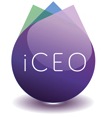Is “Free” a viable business model?
I was recently asked this by someone who runs a software business and they are introducing a new product into a well established market. They have big ambitions to “shake it up a bit” and they are thinking about all there different ways they can attract attention. One of the biggest challenges any business has, is deciding how to set the price of their product. This is a balancing act because if the price is too high they may not achieve the volumes hoped for. If it’s too low they could be perceived as an inferior brand or they could be making less revenue than their product is actually worth.
One of the biggest challenges any business has, is deciding how to set the price of their product. This is a balancing act because if the price is too high they may not achieve the volumes hoped for. If it’s too low they could be perceived as an inferior brand or they could be making less revenue than their product is actually worth.
Some people think “Free” was developed with the spread of the internet. Of course it’s a big factor, but it’s been used in various ways for a long time before that. Free is very widely applied to software (all social media is basically free) and knowledge-based products such as ebooks, because the only costs of production are usually time and effort.
- Allow potential buyers to use your product for a limited period to try before they buy;
- Provide a less functionally complete or feature rich (lite) version. If they want to do more, they pay. This is very commonly used and if the balance is right, the subscribers effectively subsidise the free users.
- Support the free version through advertising
- Get sponsorship from people or organisations who want to communicate with your audience to create awareness for their cause, belief or brand;
- Loan a new product to a carefully chosen group of people who will write flattering reviews, which in turn will attract paying buyers;
- Give the product to a person who has influence and is able to attract other buyers by endorsing your product;
- Buy one, get one free, which is a way of achieving increased volume;
- If your product has components, you can ‘give’ something away when a system is purchased. Look at how the price of printers are now so low. Often, a full set of ink cartridges cost more than the printer. How long will it be before you get a ‘free’ printer when you buy a complete pack of ink?


